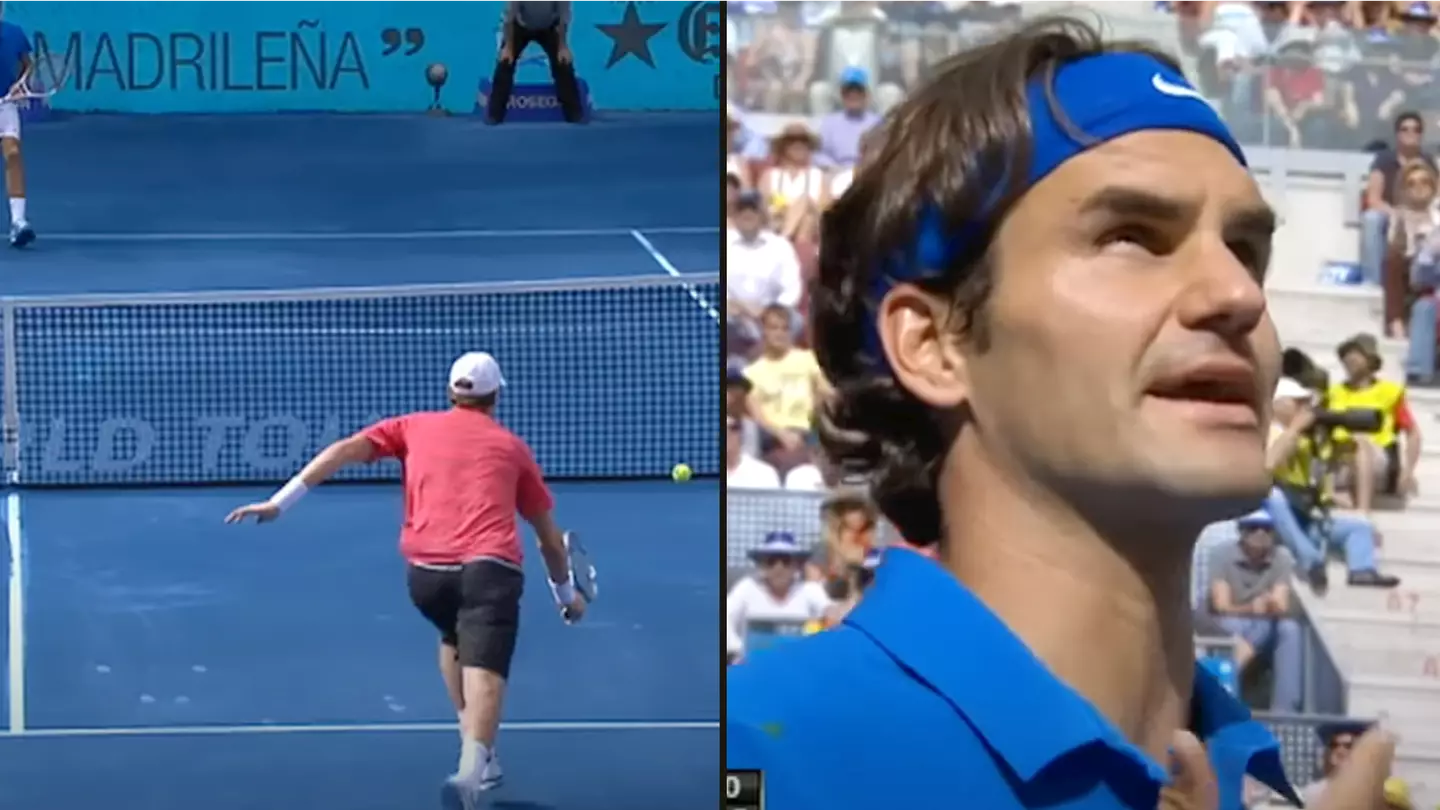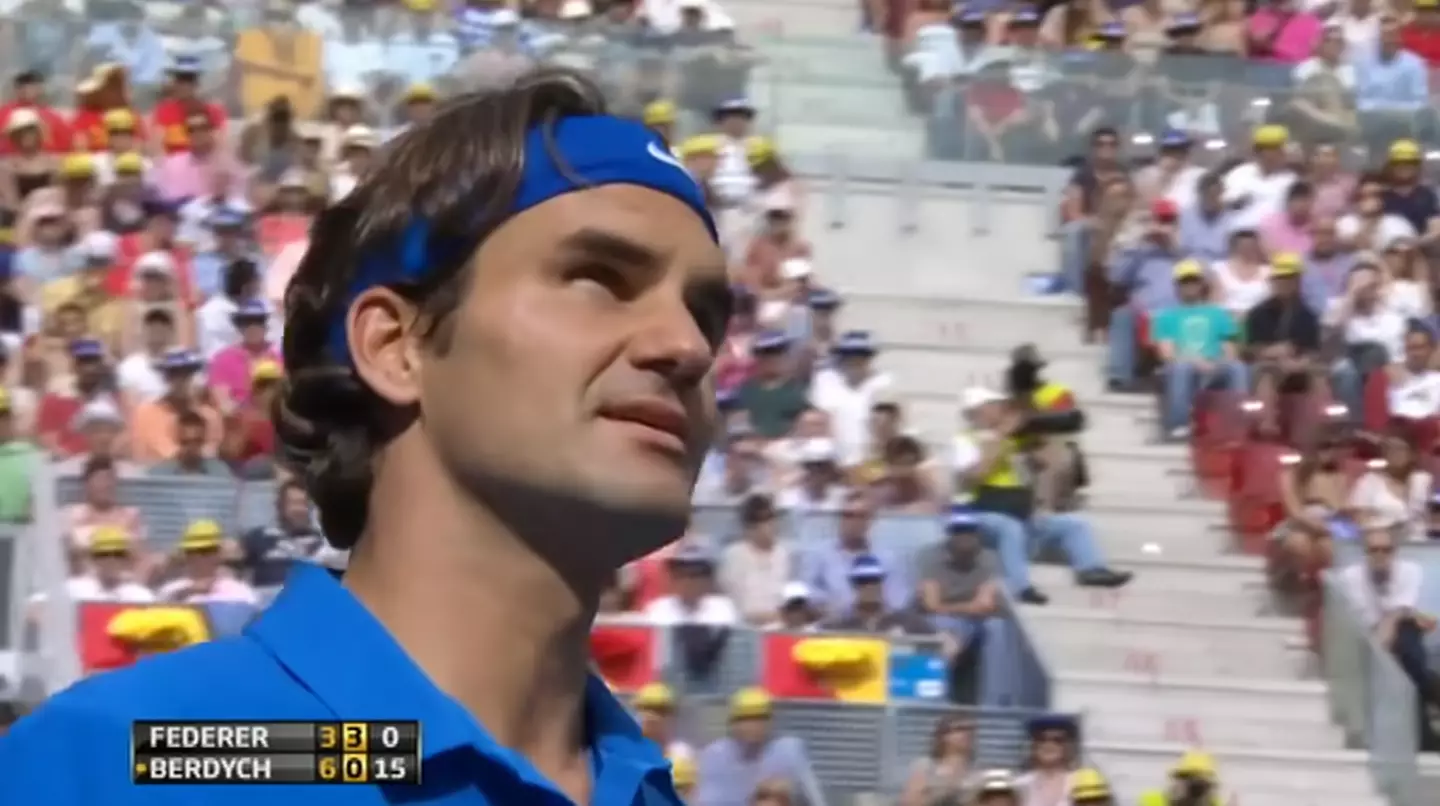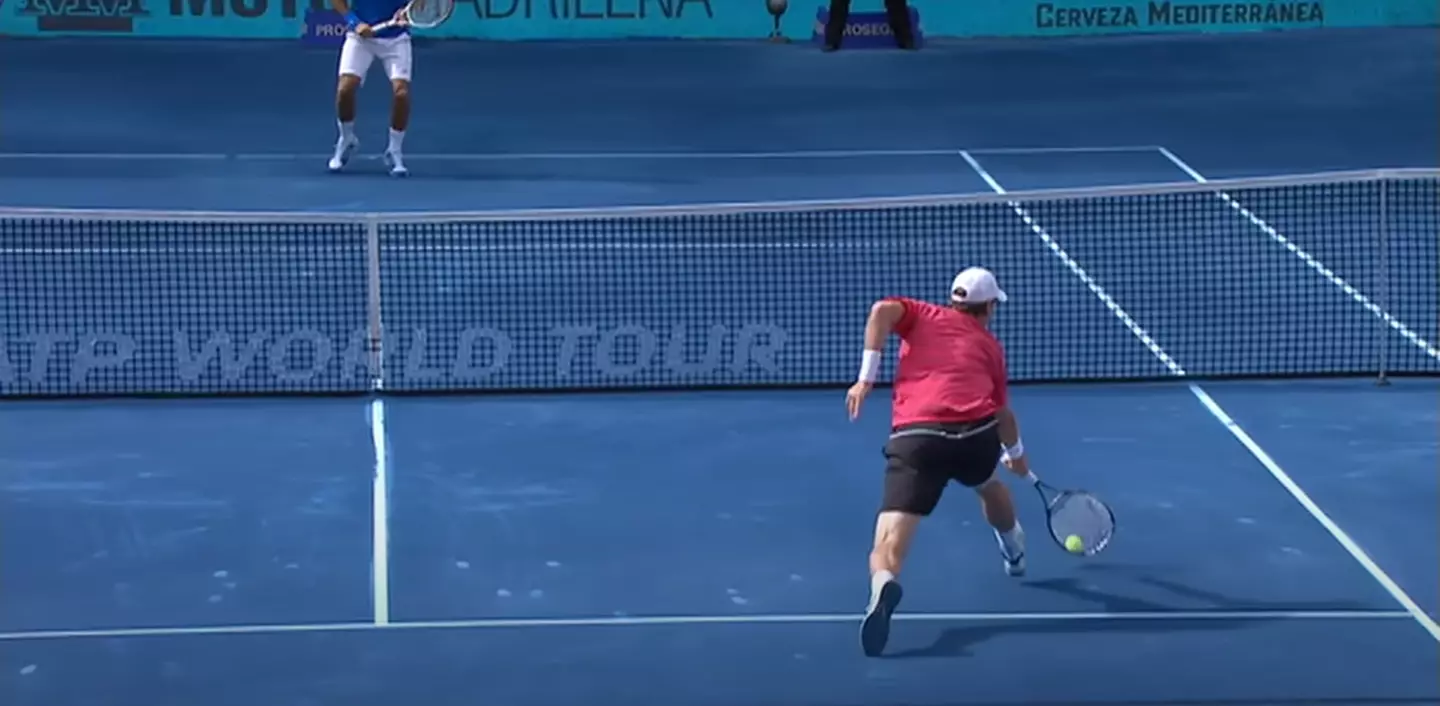
Roger Federer once used science in an attempt to convince the umpire that he’d won a point. He was right too, not that it did him any good.
Federer is well known for being a good sport - despite some tantrums and incidents in his youth.
The Swiss ex-player is the elder statesman of tennis, unquestionably one of the greatest players of all time, and always seemed to exude class.
Basically, what he doesn’t know about tennis isn’t really worth knowing.
Advert
Sometimes, it seems as if he even knows better than the umpires who sit in the chair to oversee his matches.
On this occasion, Federer was probably the best placed person on the court to realise what had happened, but it didn’t stop him losing the point.

This all took place years ago, when Big Rog was taking on Czech superstar Tomáš Berdych at the 2012 Madrid Open.
The pair were engaged in a pretty frantic point, which Federer thought he’d won with the sort of delicate drop shot that he might as well just trademark.
Just when it looked as if he wouldn’t make it, Berdych ate up the ground and seemed to have made the shot, forcing a pretty weak return from Federer that he promptly slapped past him for the point.
However, Roger wasn’t having that, approaching the chair to complain that he thought the ball had bounced twice, and explaining the science behind his reasoning.
“Did you see how the ball bounced towards me?” he asked the chair umpire.
The umpire responded that he thought Berdych got the racket underneath it.
Roger hit back: “The ball came bouncing at me in a topspin way.
“The only way [that can happen] is if you push the ball down into the court first.”
So, the basic thought is that if he had hit the ball with topspin - spinning away from Berdych - he’d have had to hit it off the court to impart that on the ball, or the ball would have to have bounced twice before he hit it.
The replays showed that he was right, too.
Berdych didn’t seem to quite get there.

Anyway, while it showed off Federer’s innate and impressive knowledge of the physics of the game - which you’d expect, to be fair - it was ultimately pointless, as he didn’t get the point.
He did win the match though, beating Berdych 3-6, 7-5, 7-5 to win the tournament outright.
What’s more, the 41-year-old won 20 Grand Slam events in his illustrious career, a feat only bettered by his younger rivals Rafael Nadal and Novak Djokovic, who - along with Federer - made the past few decades one of the most competitive ever in men’s singles tennis.
He might have lost this point, but he won the moral argument, and probably won’t mind too much about this little indiscretion now that all is said and done.